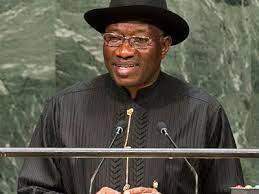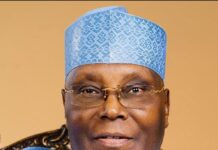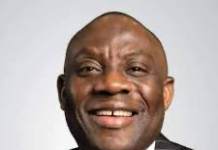Falana is Wrong, Jonathan is Constitutionally Eligible to Contest in 2023 By Abdul Mahmud
POLITICS DIGEST- A lot has been made of the Section 137 (3) of the Constitution 1999 ( With Alterations). As far as I am aware, the arguments that Dr Jonathan is not constitutionally qualified to seek the presidential office were first canvassed by my friend and former undergraduate classmate, Dr Law Mefor, in November 2020. Just yesterday, my friend and comrade, Femi Falana SAN, canvassed same arguments. I don’t agree with them.
With respect to Section 137(3) CFRN 1999, statutes are construed as operating only in cases or on facts which came into existence after the statutes were passed unless a retroactive effect is intended. Section 137(3) is not in anyway retroactive or retrospective, nor is it intended to be so ( The SC decisions of Obayemi v PDP (2019), Gusau v APC (2019) & Kusamotu v APC (2019 were held for a different reason – computation of time ) – it is prospective because it deals with substantive rights, not time computation or the extinguishment of procedure.
The Supreme Court clarified retroactive and prospective statutes in Ojokolobo v Alamu (1998) and I’m of the view that this decision would help us to correctly interpret Section 137(3), without importing absurdity to the intention of the drafters.
This is what the SC held:
“It is a cardinal principle of our law that a statute operates prospectively and cannot apply retrospectively unless it is made to do so by clear and express terms or it only affects purely procedural matters and does not affect the rights of the parties: Oshinye v. Commissioner of Police 5 FSC 105 at 112, Kimbray v. Draper (1868) L.R. 3 QR. 160 at 163, In re Suche & Co. Ltd. (1875) 1 Ch. 48 at 50, Colonial Sugar Refining Co. v. Irving (1905) A. C. 369 at 172”
Read Also:
The SC further clarified in Ojokolobo’s case that “Generally, statutes are construed as operating only in cases or on facts which come into existence after the statutes were passed unless a retrospective effect is clearly intended.
It is a fundamental rule of Nigerian law (received from English law) that no statute shall be construed to have a retrospective operation unless such a construction appears very clearly in the terms of the Act or Law; or arises by necessary and distinct implication see Re Athlumney (1898) 2 Q.B. 551 at pp. 551. 552. What do we mean by retrospective operation of a statute A statute is retrospective “which takes away or impairs any vested right acquired under existing laws or creates a new obligation or imposes a new duty, or attaches a new disability in respect to transactions or considerations already past.”- Per Obaseki JSC.
What my friends appear to make out is that S.137(3) of the Constitution 1999 is retroactive. The decisions of Obayemi, Gusau and Kusamotu deal with computation of time to file a pre-election appeal and not substantive right. Our guide on this issue is Ojokolobo’s case.
My friends arguments are an absurd interpretation of Section 137(3) CFRN 1979. Statutes are construed as operating only in cases or on facts which came into existence after the statutes were passed unless a retroactive effect is intended. Retroactive provision of a statute can never extinguish rights established by a substantive law. A retroactive law can never impair existing right or obligations, except the right or obligation is of procedure. Section 137 (3) is thus prospective, to the extent that it takes effect in the future, by affirming the substantive right to seek elective office.
Further more on the question of whether Dr Jonathan can spend more than two terms of eight years of the Presidential terms of office, my answer is that Dr Jonathan previously served a term of four years from 2011-2015. The one year of Late Yar’Adua doesn’t count as part of his Presidential term. The Court of Appeal in Cyriakus Njoku v Dr Jonathan and Ors (2015) clarified this point and distinguished it from the Supreme Court decision in Marwa v Nyarko (2012) and held that the one year of Yar’Adua served out by Dr Jonathan doesn’t fall within computational term of four years because Dr Jonathan was appointed by the Constitution (Section 137(1) and (2)) and not elected as President. The Court further held that Dr Jonathan had only previously sworn to one oath of office – Oath as elected Vice President, not President.
I don’t support the regressive adventure and morally hollow decision of Dr Jonathan to run for another term, either in APC or whatever party he chooses; my purpose here is join to give clarity to the law, until the court makes pronouncement on Section 137 (3).
…. Abdul Mahmud is a legal practitioner and human rights activist.















